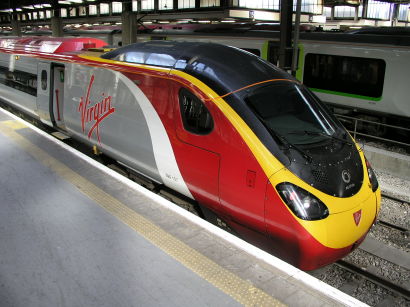THE PRIME MINISTER said he is 'extremely angry and apologetic' about the crisis which has prevented FirstGroup taking over the Intercity West Coast franchise on 9 December. David Cameron also vowed that those responsible for the miscalculations at the DfT will be 'held to account'.
Mr Cameron conceded that 'technical errors' by the DfT's Rail Group had remained undetected, although he insisted No.10 had done all it could to double-check the process.
The implications of the decision to cancel the award of the franchise after transport secretary Patrick McLoughlin admitted that there had been 'significant technical flaws in the way the franchise process was conducted' have been multiplying. Two inquiries have been launched – one of them to examine the Department's methods of evaluating bids and awarding franchises – and three civil servants who have been suspended may face disciplinary action.
The general refranchising programme has also been suspended at least until the inquiries have been completed, which means that the four awards scheduled for 2013 are now in serious doubt.
It has emerged that there had been some double-counting by officials, and that the West Coast competition had been the first major test of a new computer model which was supposed to assess the risk involved in each bid. It appears one problem was that the effect of inflation was overlooked when this model was used, which had major consequences when calculating the prospects for a franchise intended to run for more than 13 years and possibly for as long as 15.
Talks have been taking place between the DfT and Virgin Trains, who had been due to cease operating on the West Coast Main Line on 9 December. It now seems that VT may continue under a management contract, in return for a fixed percentage of revenue – possibly 2 per cent. This would make VT a contractor of the DfT's Directly Operated Railways, and such an arrangement would be a re-run of the situation between 2002 and 2006, when West Coast was also run by Virgin via a management contract following the collapse of Railtrack's West Coast Upgrade scheme.
If Virgin does not reach agreement with the DfT, then DOR would have to take over full management of the service. DOR has been running the intercity service on the East Coast Main Line since November 2009, when National Express Group surrendered the contract.
It was two successive failures of East Coast franchises that helped to fuel Virgin's protest about the West Coast decision, which would have been examined by the High Court this month if the DfT had not backed down and admitted its errors.
Other concerns now being voiced include fears of adverse effects on the supply chain following suspension of the franchise programme, and also speculation that the eventual cost to the taxpayer could be far higher than the £40 million which has been estimated by the DfT.


